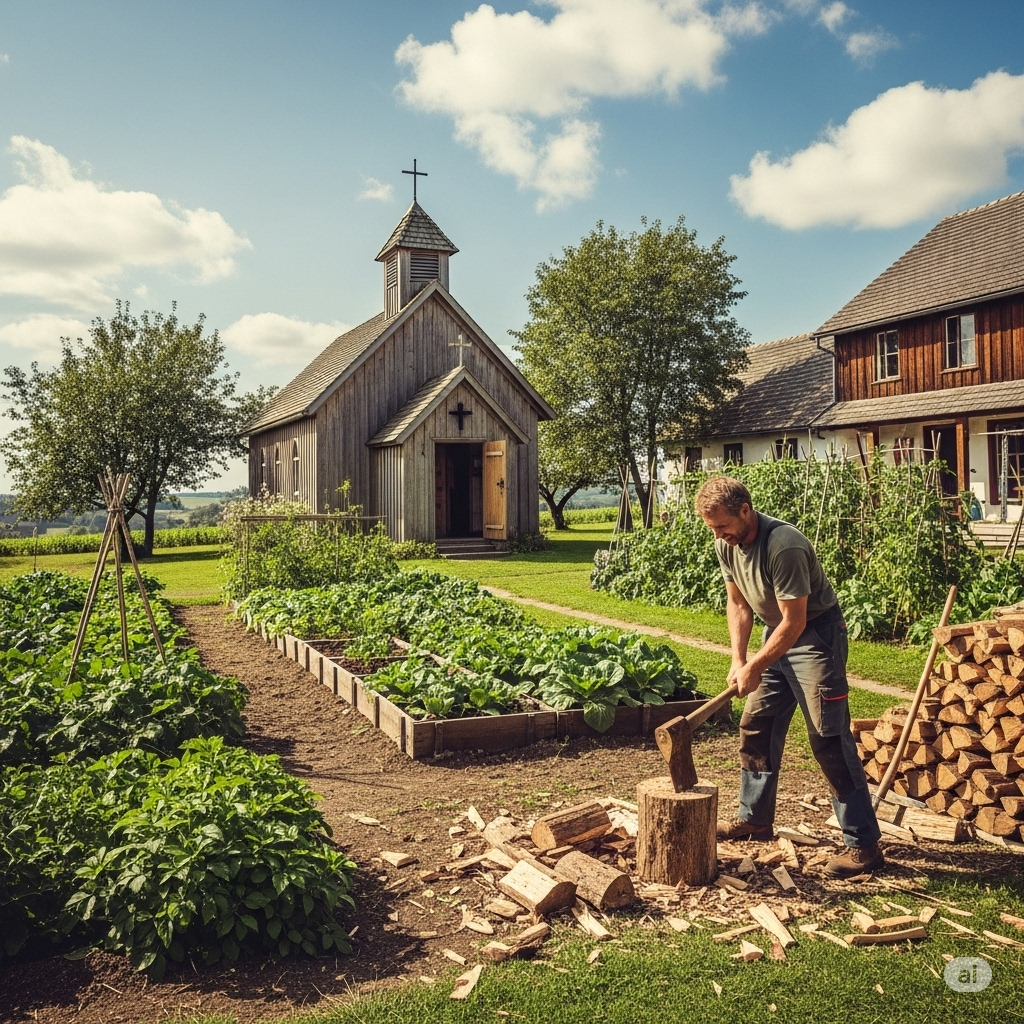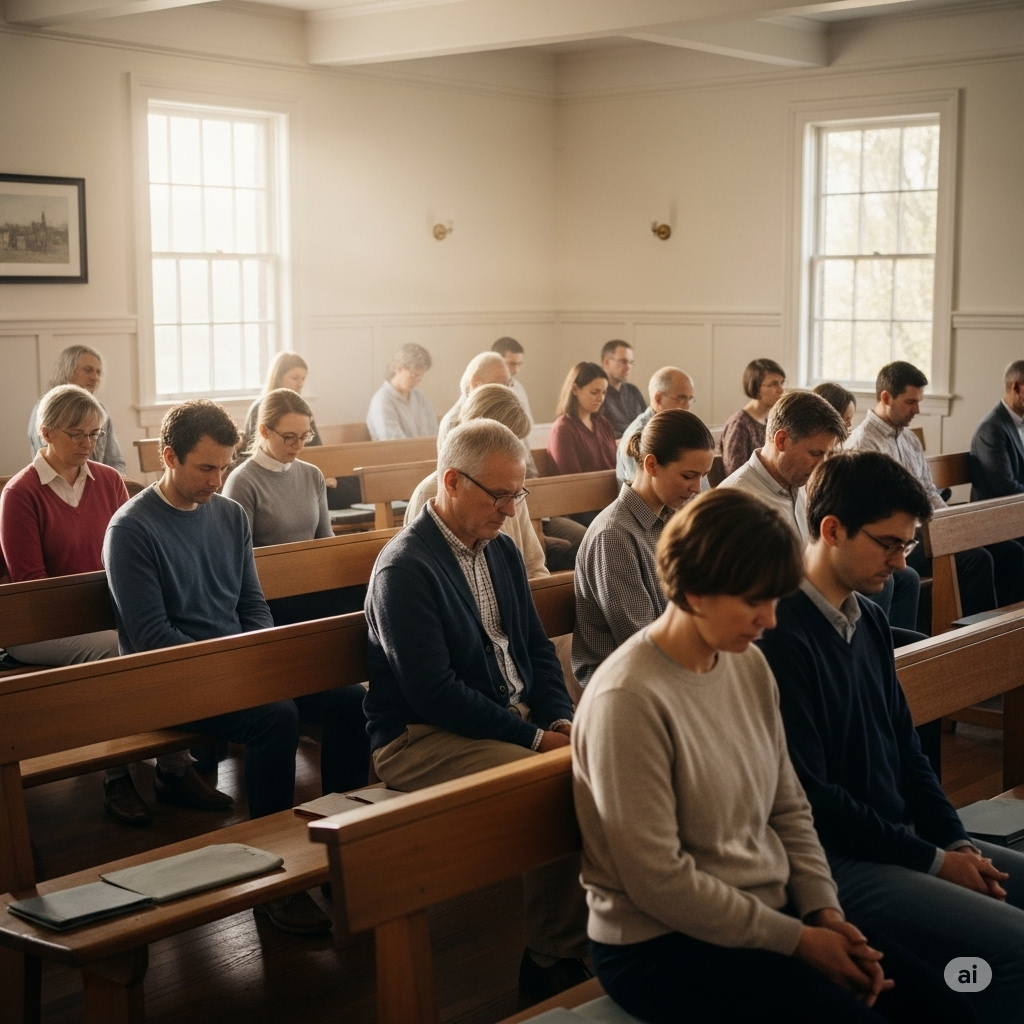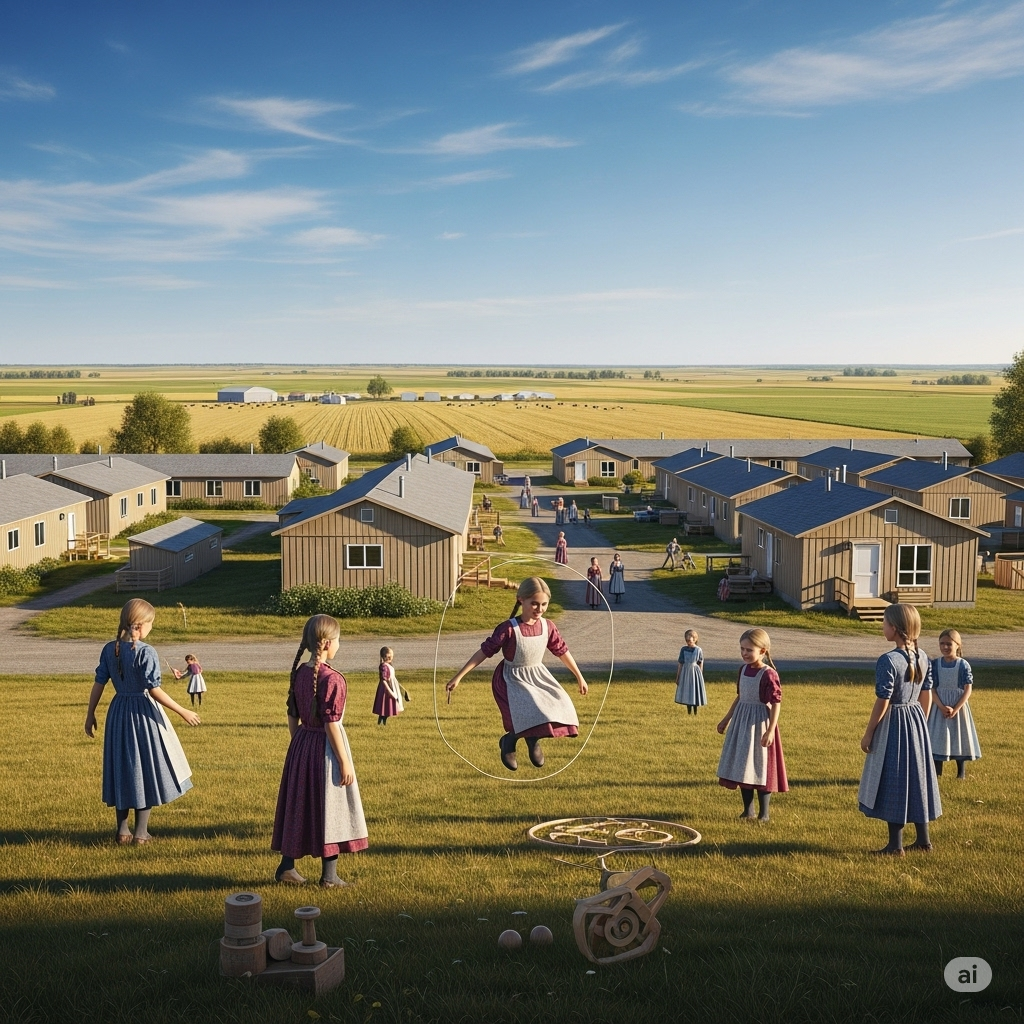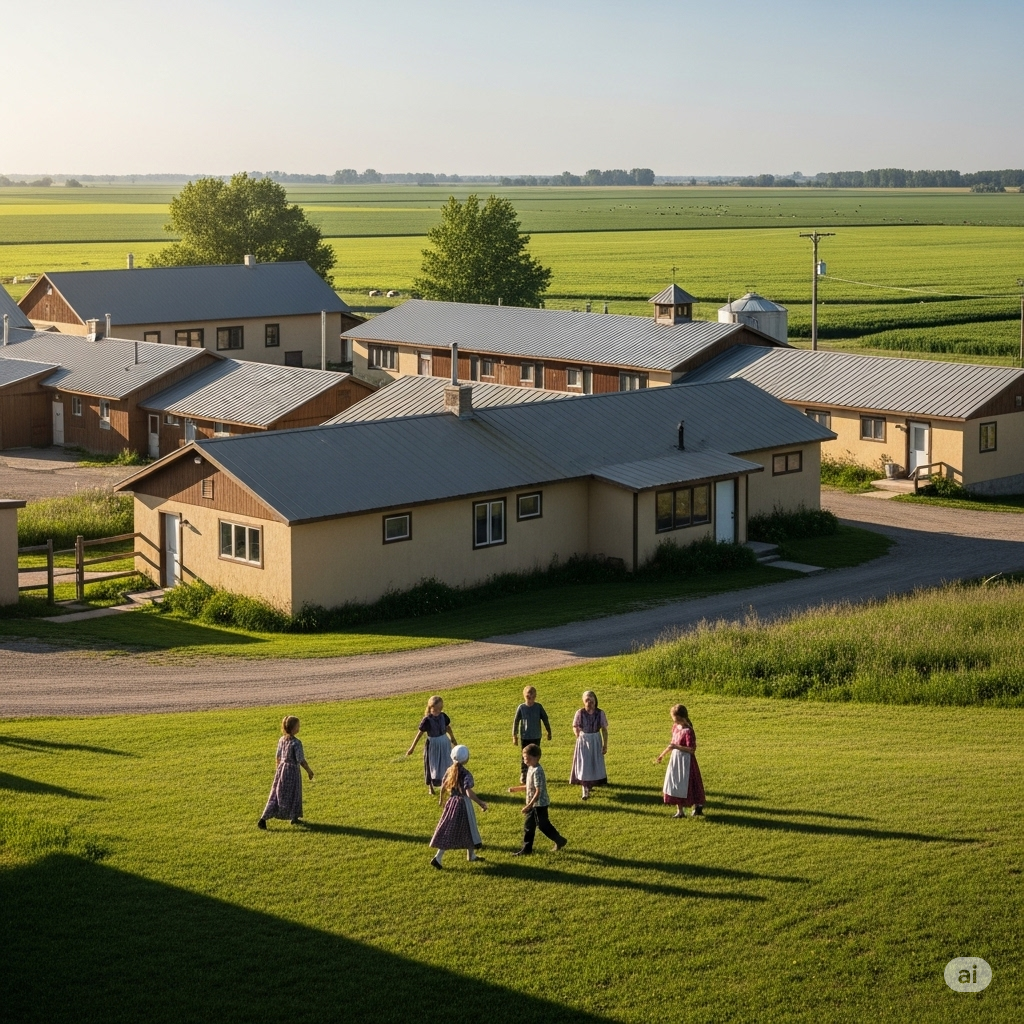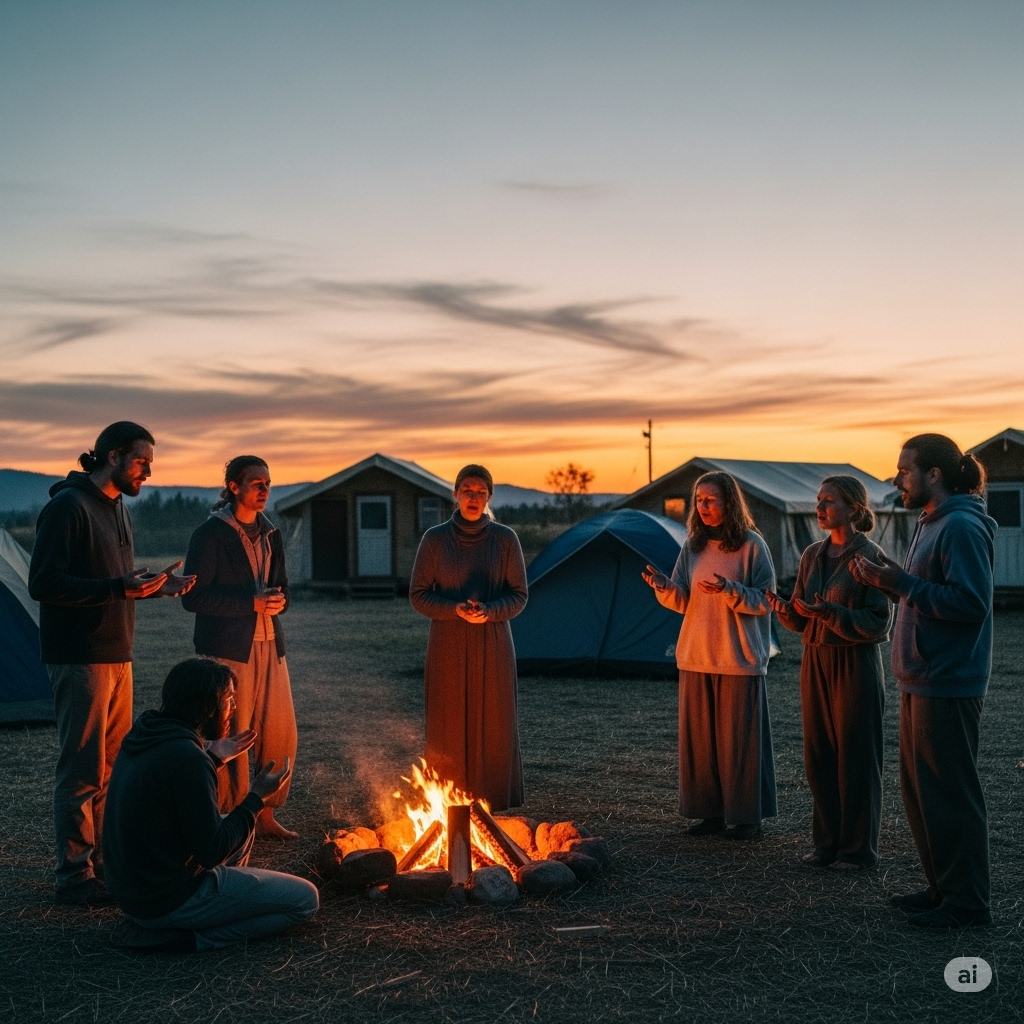
Inside the World of Christian Intentional Communities Today
Ever feel like life’s just moving too fast? Like everyone’s chasing money, status, or followers… but somehow still feeling lonely, burned out, and kinda lost?
If you’ve ever thought, “There’s gotta be more to life than this,”
Well — you’re not alone.
And that’s exactly what led a growing number of people to say,
“Screw the rat race. I want something deeper.”
Enter: Christian intentional communities.
These aren’t cults. They’re not monasteries. And no — you don’t have to give up all your stuff or wear robes (unless that’s your thing).
They’re places where people come together — on purpose — to live out their faith, build strong relationships, and slow things down.
So what’s the real story behind these communities? And why are more folks, from college grads to retirees, leaving behind “normal life” to join them?
Let’s dive in.
What Even Is a Christian Intentional Community?
First up — let’s break down the phrase.
-
“Intentional” means it doesn’t happen by accident. People choose to live together and build something bigger than themselves.
-
“Community” means real connection — shared meals, shared work, shared purpose.
-
And “Christian” means the foundation is rooted in faith — usually around the teachings of Jesus, love for others, service, and simple living.
Now, these places come in all shapes and sizes. Some look like little villages or farms. Others are just a few houses on the same street.
But what they all have in common is this: a desire to live life differently — together, on purpose, for something that actually matters.
Why Do People Choose This Lifestyle?
Here’s the truth: a lot of folks are just… tired.
Tired of living paycheck to paycheck.
Tired of fake friendships.
Tired of churches that feel more like concerts than communities.
Tired of going through the motions.
So they ask the question: What if we just… started over?
And that’s where Christian intentional communities come in. People crave:
-
Deeper spiritual life
-
Real connection with others
-
Purposeful work
-
A slower, more meaningful pace
These communities offer an escape from isolation and a return to something old — something that feels a bit like the early church, or even family.
But Wait… Don’t Only “Extreme” People Do This?
Nope. Not at all.
Sure, some folks imagine this lifestyle means throwing away your phone and living off the land in the woods. But most modern Christian communities actually balance faith and function pretty well.
People work real jobs, use tech (with boundaries), and even have Wi-Fi. But what’s different is the mindset — everything is done with intention, from the way they eat to the way they raise kids.
This isn’t about “checking out of the world.” It’s about re-engaging with it in a new, grounded way.
Common Questions People Have
Do they all live in one big house or what?
Not always. Some live in shared homes. Others live in separate houses but on the same land or in the same neighborhood. What matters most is that they do life together.
Do they follow a specific church or denomination?
Some do — like Catholic Worker houses or Mennonite communities. Others are non-denominational. But they’re all centered around living out the teachings of Jesus, not just talking about them on Sundays.
What about money and work?
Some communities pool income and share everything. Others have a hybrid approach. Many encourage members to work part-time jobs and contribute to shared projects like farming, tutoring, or hospitality.
Do you have to give up all your stuff?
Nope. But people in these communities often choose to live simply — not because they have to, but because it frees them up to focus on people, not possessions.
Can families live in these communities too?
Absolutely. Many are family-friendly and believe raising kids in a tight-knit environment is a major win.
Are these communities open to outsiders or diverse folks?
More and more of them are working hard to be inclusive — racially, socioeconomically, and even with people on the margins of society. Hospitality is a huge value.
So, What’s the Real Point of All This?
It’s not about hiding from the world.
It’s about healing, growing, and living in alignment with what you actually believe.
Christian intentional communities exist to help people:
-
Love their neighbors — literally
-
Practice generosity — not just talk about it
-
Stay rooted in faith — even when life gets messy
-
Share burdens — because no one’s meant to carry it all alone
-
Serve others — not from a place of guilt, but from joy
These communities are spiritual bootcamps. Healing circles. Work hubs. Prayer rooms. Dinner tables. Gardens. Playgrounds.
They’re little pockets of grace in a chaotic world.
Is It All Perfect? Of Course Not.
Let’s be real — anytime you mix humans together, there’s gonna be conflict.
People disagree. People get tired. People change their minds.
Intentional community life takes work — real emotional, spiritual, and practical effort.
But for many, the benefits far outweigh the struggles.
Because even in the hard moments, they’re not doing life alone.
They’re growing — together.
Could This Be for You?
You don’t have to move into a commune tomorrow to start living more intentionally.
But maybe this lifestyle is calling to something deep in you.
Maybe you’ve been feeling disconnected, spiritually dry, or just plain burned out.
Maybe you’re longing for real community — not just likes and group chats.
So ask yourself:
-
What if church wasn’t just a place you go once a week, but a group of people you live with and love daily?
-
What if your neighbors were your prayer partners, your coworkers, your real friends?
-
What if your faith showed up in the way you grow food, raise your kids, or care for the poor?
Sound radical? Maybe.
But also… maybe not radical enough.
Think About It — Then Reach Out
You don’t have to sell your stuff and join a farm in the middle of nowhere (unless that sounds awesome).
But you can take small steps:
-
Host regular meals with friends and neighbors
-
Volunteer at a faith-based community project
-
Visit or stay short-term at an intentional community (a lot welcome guests!)
-
Start praying about what “living differently” could look like for you
You weren’t made to do life alone.
And maybe — just maybe — community is what your soul’s been craving all along.
Wanna Explore More? Check Out These Resources:
-
The Intentional Christian Community Handbook by David Janzen
-
The Simple Way (Philadelphia) – https://thesimpleway.org
-
Reba Place Fellowship (Illinois) – https://rebaplacefellowship.org
-
Bruderhof Communities – https://www.bruderhof.com
-
Christian Community Development Association – https://ccda.org

